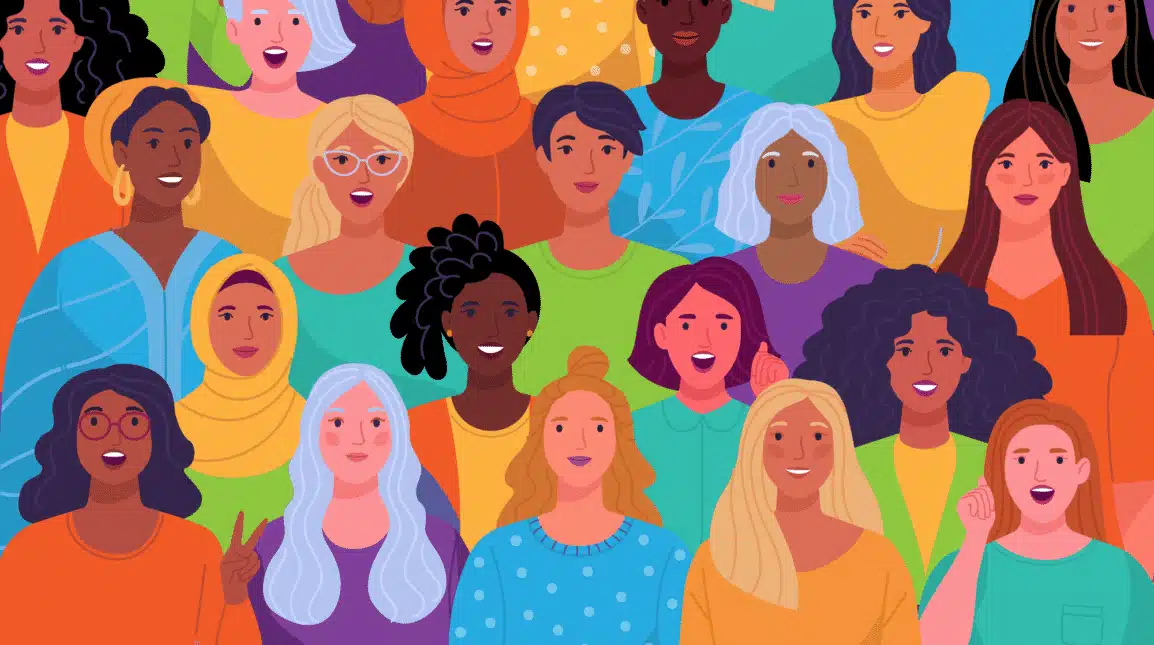March was Women’s History Month in the United States. This isn’t just a “Hallmark holiday” or an empty gesture. It’s an act of Congress. The United Nations also recognizes March as Gender Equality Month, and March 8 is International Women’s Day. And though we are now into April, our team wants to make sure the spirit of this holiday continues on beyond the month of March.
We deeply believe in the power of women. And we emphatically believe in the power of women as professionals in the field of early childhood education.
The future of child care and early childhood education depends on greater recognition and appreciation of the profession — from the top down and from the bottom up. These are more than temporary gigs or take-it-or-leave-it jobs. They’re professions through and through, and the people who have made a career of these professions — almost all of them women — are consummate professionals through and through.
According to the Bureau of Labor Statistics, 95% of all childcare workers are women and 99% of all preschool and kindergarten teachers are women. Every day is a day we should recognize the importance of these women, because the impact of their work is all around us. The engagement they have with our very youngest children determines so much of what those children become, and what those children become comprises the very heart of our country.
The shortsighted history
Provocative as it may be, let’s devote a few paragraphs of this post about women to a man:
In a 1785 book called Notes on the State of Virginia, Thomas Jefferson briefly laid out his vision for formalizing education in the United States — or at least in his home state. A straight line connects so much of what he wrote to so much of what our schools look like today. That includes the good, the bad, and the ugly — the increased access that we hold up as an ideal and the racial inequities that continue to plague the system:
- He talked about the critical need to “diffuse knowledge more generally through the mass of the people.” (Good!)
- He advocated for dividing each county into small districts, and “in each of them to establish a school for teaching reading, writing, and arithmetic.” (Sensible!)
- He talked of “rak[ing] geniuses from the rubbish” while providing a baseline education for all (well, most) children. (Harsh and inequitable!)
- He wrote, “There is a certain period of life, say from eight to fifteen or sixteen years of age, when the mind … is then most susceptible and tenacious of impressions.” (Shortsighted?!)
It’s almost flippant, haphazard, and random the way he says it: “… from eight to fifteen or sixteen.” If only he had opted to adjust his numbers: “… from birth to four or five!” What could have been!
The stark present
The age range between birth and 5 years has long been recognized as a crucial period for brain development. The sophistication of brain science and the ever-compounding research point to the same conclusion: “A baby’s early experiences in relationships, whether at home or in an early education environment, set the stage for future brain functioning.” LENA’s own researchers have shown that increased early talk in the period between 18 and 24 months is especially predictive of future success in school.
What does that all mean? It means we’re past due for pragmatic, actionable, dollars-and-cents action that reflects just how critical early childhood education is — and, in fact, has always been. It also means we’re past due for a new perspective on the professions of those women in early childhood education who “set the stage for future brain functioning” in our youngest children. Keeping the best and the brightest in the profession, preventing them from jumping ship for more prosperous opportunities, is paramount. The prosperity of those in early childhood education professions should match the importance of their work.
A 2018 report by the Urban Institute revealed a wide disparity in wages between veteran child care workers and K-12 teachers. That’s a disparity that should not exist. Before that, a 2015 report by the Economic Policy Institute put it in even starker terms: “Child care workers aren’t paid enough to make ends meet.” Affordable access to high-quality child care shouldn’t be a bipartisan issue. As Elliot Haspel puts it in his 2019 book, Crawling Behind: America’s Child Care Crisis and How To Fix It, “[T]he state of child care has gotten so very bad — and the impacts felt across so very many income brackets — that every constituency, interest group, and political party has reason to get behind a fix.”
The (potentially) promising future for women in early childhood education
Thomas Jefferson is all but ancient history at this point. What we need to do is look ahead to the future — and it must be the immediate future. Early childhood education has a fascinating history. It has grown by fits and starts, but not by leaps and bounds. It’s high time for a giant leap. As glimmers of a post-pandemic America show up on the horizon, the prospects of a thriving child care industry look bleak and “little Band-Aids” can only do so much.
But it doesn’t have to be that way.
The White House’s description of the American Rescue Plan Act of 2021 includes a refreshingly blunt statement on addressing the “acute, immediate child care crisis.” It goes on to acknowledge that almost all early child care workers are women, and that 40% are women of color. These are important acknowledgments. Acknowledgment must be followed by action. Ensuring affordable access to high-quality child care for American families can and will only come to pass if we also ensure the dignity and prosperity of the women providing that care and educating our youngest children.



